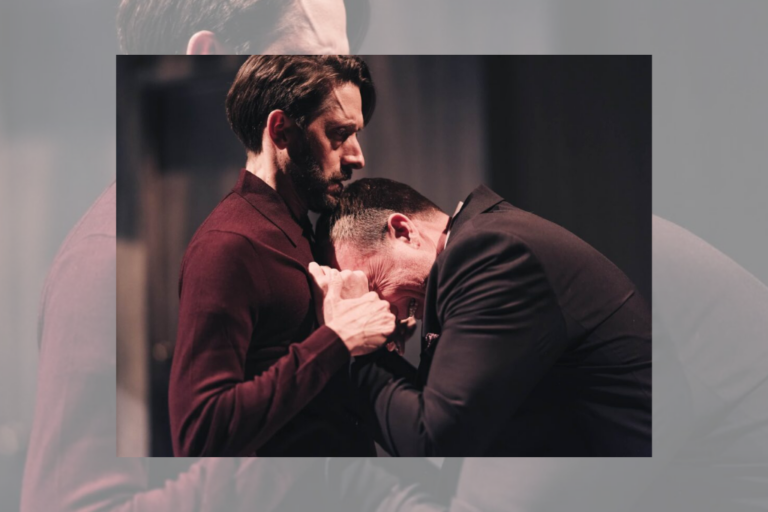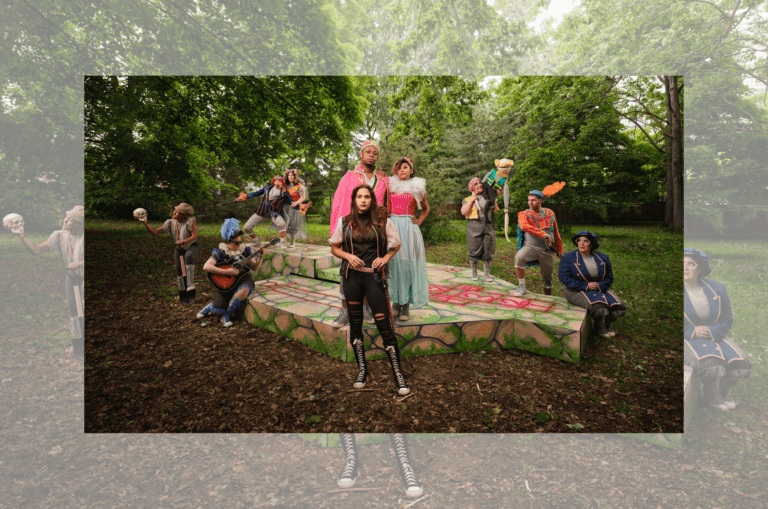The Supine Cobbler is an abortion play that ‘negotiates integrity in a lawless world’ at GCTC
A 2022 survey conducted by the Angus Reid institute found that one in six Canadian women have had surgical abortions.
When director Emily Pearlman relayed this stat to me, I was shocked. She reassured me, saying, “I don’t think people know that it’s that many people who have had them.”
Why?
“Because they don’t talk about it.”
Written by Jill Connell,The Supine Cobbler, the premiere show of the Great Canadian Theatre Company’s 2023 season, does just the opposite: it brings otherwise taboo medical procedures to centre stage.
“It is a contemporary, feminist Western – that takes place in an abortion clinic,” explained Pearlman in a phone interview. “It allows the performers to use the genre traditionally owned by men, and subvert it to tell a story that we don’t see told.” The story, in this case, is that of a woman going through the significant medical procedure that is an abortion.
(You will often hear the term “woman” used in conversations like these, but it’s important to recognize that folks of varying gender identities can have abortions and be affected by laws surrounding uterine health. The Cobbler’s story is inclusive to many experiences.)
When people think about Westerns, they might picture outlaws, sheriffs, robberies, and shoot-outs. The Supine Cobbler takes those recognizable tropes and uses them as “points of access” for the play’s heavier themes, says Pearlman.
“People, especially [with] an abortion story, think they know what they’re going to get,” shared lead performer Maryse Fernandes. “This play is really interesting, because … whatever you think it is, it’s not going to be that.”
As much as abortions may fall outside of your typical cowboy plotline, the playwright’s choice to frame this story through a Western lens is bold genius. The familiar genre commands audiences’ attention by entertaining them. Pearlman described it as “a way to get people to listen.”
“The audience is going to come to an abortion play versus a Western?,” she laughed. “You package the story as a Western, and suddenly, it makes it relevant.”
Fernandes echoed these feelings. “If people cared about abortion stories and the people who have abortions as much as they did about the Westerns […] it would be amazing,” she said. “It’d be a very, very different world.”
A world, Pearlman muses, where “the procedure is like a root canal. It’s healthcare. It’s nothing that should be stigmatized. Because it is a health care procedure that so many people go through.”
In addition to the clever subversion of a blockbuster form, this play also radicalizes the way it depicts abortion through its content. One of the things that originally drew Pearlman to the play was its “incredibly political move of presenting the abortion without commentary.”
Too often does the media focus on the question of “should she have an abortion?” In a world as lawless and high-stakes as The Supine Cobbler, there’s no room for questions like these, says Pearlman.
“There’s not an opportunity for audience members to debate like, ‘Should she? Shouldn’t she?’ That’s not the topic. She’s having it,” she told me.
When asked how this play might resonate with Ottawa’s audiences, Pearlman explained that “sometimes we as Canadians are like, ‘Well, you know, we’re not the States. It’s wild down there, what’s happening with abortion.’ But overturning Roe v. Wade…” Pearlman trailed off, the weight of the statement sinking in.
“There’s a beautiful line in the play about how ‘things change in an instant and you just need to be prepared for that,’” she continued.
“This play is really interesting, because whatever you think it is, it’s not going to be that.”
When the laws governing female bodies are constantly in flux, Pearlman asks: “How do you continue to be a human in the world when one second, your body is yours and the next second it’s not? And one second you get to make decisions about it and the next second you don’t?”
Though terrifying, the implication is undeniable: even local audiences who feel safe now, could one day find themselves “‘negotiating integrity in a lawless world’,” Pearlman said, quoting the playwright. Which is the essence of the Western genre, really – outlaws fighting for survival.
“The reason that we had to limit these discussions in the rehearsal halls is because everybody gets too fired up. But I think that fire is part of the ‘why here now’.”
The fire Pearlman describes is what makes this play such a powerful addition to the GCTC season and the Ottawa theatre landscape as a whole.
“I think it’s important for people to see a group of really badass fem artists on stage doing a really badass script. And tackling a topic that so often gets handled in one very specific way,” said Fernandes. “I think it’s the kind of show that the city needs.”
“Also, there are jokes,” Pearlman added.
Fernandes agreed, explaining that “there’s something in the play for everybody. Whether you want to be entertained or you want to [have your] heart broken for an evening or you want to laugh, this piece has it and you won’t be disappointed.”
The Supine Cobbler runs at GCTC from September 26 until October 8. Tickets are available here.















Comments